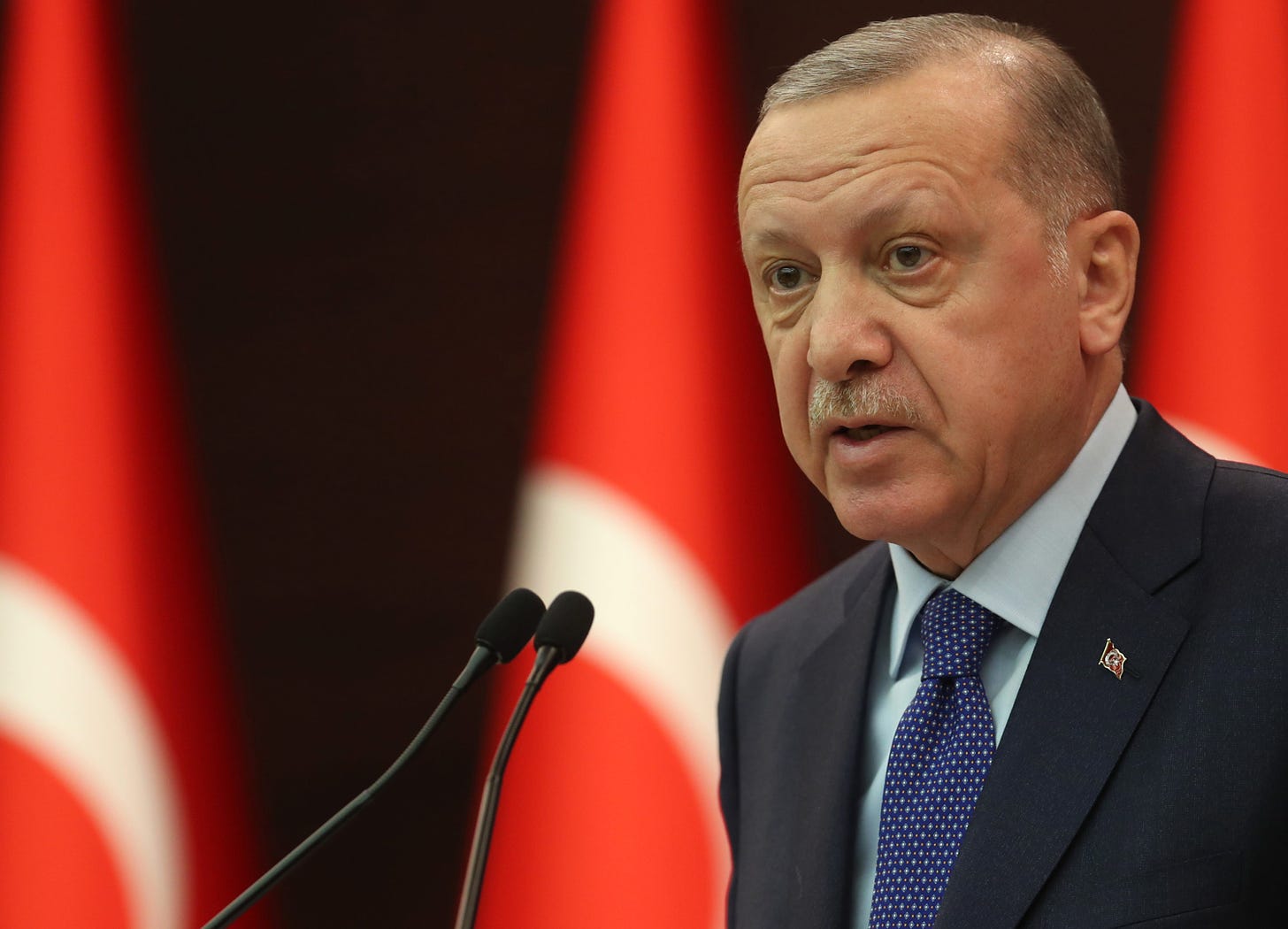Erdogan’s Egregious Economic Experiment
The Turkish president is acting as if the laws of economics don’t apply to him.

Controlled macroeconomic policy experiments are rare. Yet that is what President Recep Erdogan seems to be offering in Turkey with his highly unconventional economic policies. He might help us better understand how macroeconomics works but it is likely to come at a high cost for the Turkish public.
Nobel laureate Milton Friedman famously asserted that inflation was always and everywhere a monetary phenomenon. He also cautioned countries against trying to fix their exchange rates with one-sided exchange rate intervention. He reminded us that history was littered with examples, all ending in tears, of countries that failed to control their money supplies and that attempted to fix their exchange rates.
Erdogan has a different theory. In his view of the world, high interest rates to control the money supply are a cause and not a cure for inflation. He also seems to think that trying to fix the exchange rate is a good idea even though this might mean burning through the country’s scarce foreign exchange reserves. In addition, not content with these deviations from economic orthodoxy, he seems to think that budget discipline is not a necessary condition for sound economic management.
The Turkish president cannot be accused of not practicing what he believes. Over the last 18 months, he has leant heavily on Turkey’s central bank to cut interest rates drastically, hoping to jumpstart a flagging economy that was further enervated by the COVID-19 pandemic. Following his orders, the central bank has slashed interest rates from 24 percent in November 2019 to their present level of 8.5 percent. It did so with a view to boosting the economy’s consumption and construction sectors.
One result of the central bank’s largesse has been an explosion in Turkey’s money supply, with broad money now increasing by more than 40 percent over the past year. Another consequence has been an uptick in inflation to over 12 percent, which has rendered interest rates significantly negative in inflation-adjusted terms. That in turn has put considerable pressure on the Turkish balance of payments as the Turkish public, which is no stranger to earlier episodes of high inflation, has sought the safe haven of the U.S. dollar.
Rather than seek to address the underlying source of the country’s exchange rate and inflation problem, Erdogan has instructed the central bank to intervene heavily in the exchange rate market to prevent the currency from depreciating. He has also encouraged the central bank to borrow dollars heavily from domestic banks to finance the intervention, and he has increasingly resorted to exchange controls. The net result has been that the central bank has burnt through its foreign exchange reserves and now has a negative net international reserve position of some $30 billion, meaning it owes domestic banks that much more than it has on hand. That is Turkey’s weakest foreign exchange position in the past 20 years.
As if to heighten the prospect that Turkey will soon experience an exchange rate crisis, Erdogan has been pursuing an erratic foreign policy as well. Not content with alienating the United States by deepening his country’s military relationship with Russia, he now seems to be picking a political fight with Russia as well. (Russo-Turkish relations have been mercurial since 2014 thanks to both countries’ uncoordinated interventions in the Syrian civil war.) In addition, he is ruling out any notion of having Turkey once again approach the IMF for financial support to help it manage its balance of payment difficulties.
A full-blown Turkish exchange rate crisis could have unwelcome ramifications for the rest of the world economy in general, and for French, Italian, and Spanish banks in particular. Turkey is among the larger emerging market economies with an external debt of about $450 billion. It also has a highly indebted corporate sector that has borrowed more than $300 billion. Should the Turkish currency plunge, those corporations would have difficulty servicing their dollar-denominated debt. That in turn would put even more pressure on the country’s already shaky banking system.
At a time when Turkey is hardly the only large emerging market economy that has a serious debt problem, a wave of Turkish corporate defaults, coupled with a Turkish banking crisis, could send shudders through the global financial system.
For the sake of the global economy, and especially for the sake of the poor Turks who have to bear the brunt of Erdogan’s policies, we should all hope that he will prove Friedman and a host of other economists wrong. Not that I’d bet on it.









